Ah yes, New England clam chowder. That creamy, savory soup we love so much that we willingly go out of our way to eat during hot summer days by the beach.
This is New England’s Philly cheesesteak. Our fish and chips. Our poutine. It’s the food most folks from outside the region point to as the most “New England” food.
Of course, it’s popular and beloved, particularly come summer, when it is a must-order part of a seafood feast from your go-to oceanside clamshack, where it’s humbly and unpretentiously eaten with a plastic spoon from a styrofoam cup, with some friendly seagulls as a dinner guest.
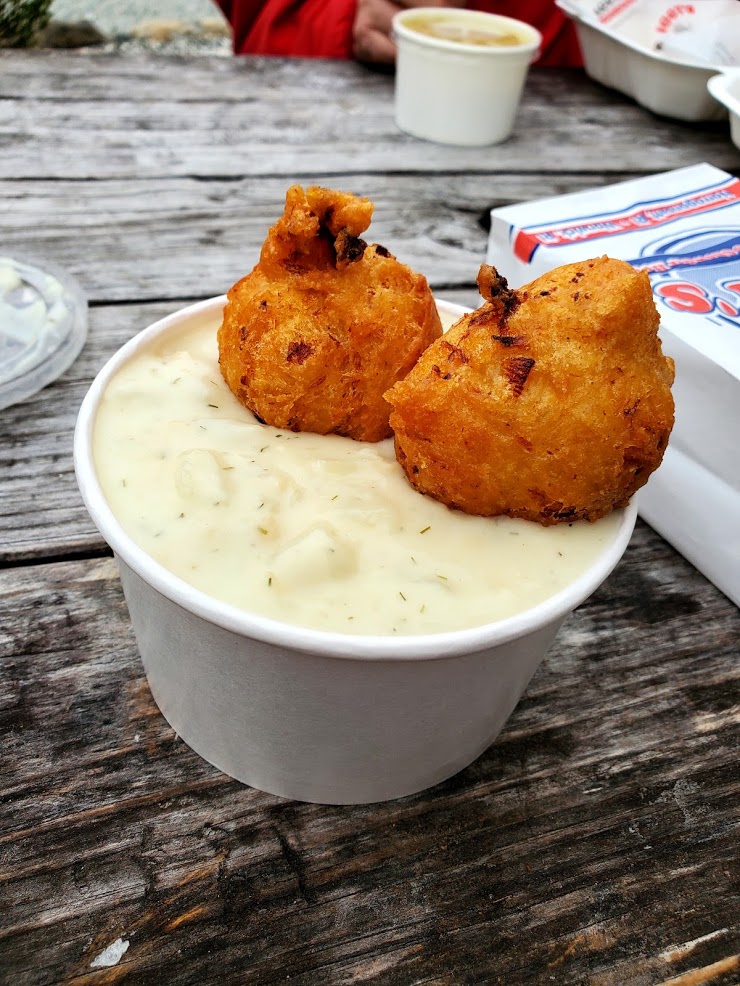
However, for a regional dish, we have an interesting relationship with this soup. It’s a relationship with that
The only time most folks come near the stuff are said beach trips. Even that might be a once or twice a year experience.
I don’t know of anyone with their own special recipe. It’s practically non-existent in New England kitchens. Never have I heard a discussion of secret ingredients or techniques that make my version better than yours.
Heck, my money is on that I am the only person I know who’s actually made it.
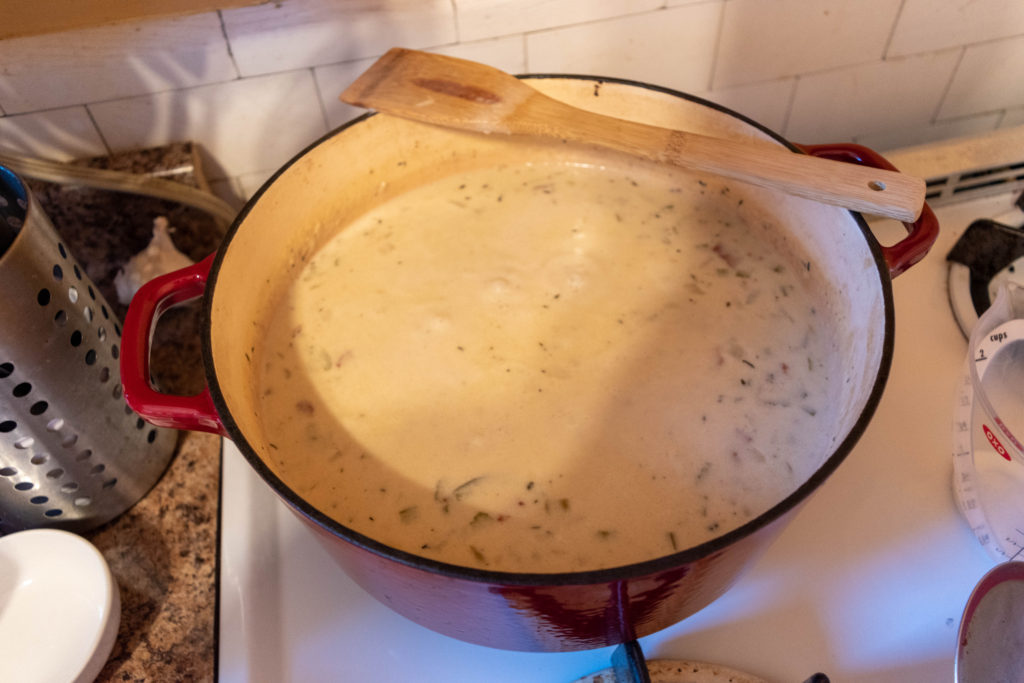
Most iconic regional dishes that call to mind such associations reside in a place that is involved culturally, made and consumed passionately. Think Italian-American Sunday gravy, which just typing the name of conjures images of a short and loving Nana carefully stirring a big pot of sauce from the moment she gets home from Church. Not to mention, the claims of who’s family makes “the best” Sunday gravy (spoiler: it’s every family if you take them by their word).
Regardless of its actual prevalence in the greater lexicon of New England foods, clam chowder is the region’s iconic food for a reason. It’s unfussy, unassuming, yet respected nature is a perfect icon of the New England attitude, of which can be described in (nearly) equal terms. Chowder has it’s place and it’s a place that we love.
Perhaps overrated in it’s prevalence, it is anything but overrated in deliciousness. A great bowl of New England clam chowder is rich and creamy with a subtle smokiness thanks to its bacon lardons. It should have briny, melt in your mouth bits of clams and tender potatoes. Thyme, dill, or your choice of herbs should compliment the base flavors. Perhaps most importantly, it should have the perfect consistency to dip clamcakes in. Oyster crackers need not apply.
Cooking this is nothing to be afraid of and with a little know how, is a simple and delicious recipe.
The Clam Chowder Manifesto
To reinstate as a checklist, a great bowl of clam chowder has:
- A rich and creamy consistency
- Tender, non-chewy clams
- A savory broth
- A subtle smokiness
- Perfectly cooked potatoes
- And a balanced consistency
We will use heavy cream to get a rich, and creamy flavor and texture. This is simple enough, but it’s necessary to drive home just how important the use of heavy cream is. This is a decadent treat. Save your 2% milk and even your half and half for your iced coffee.
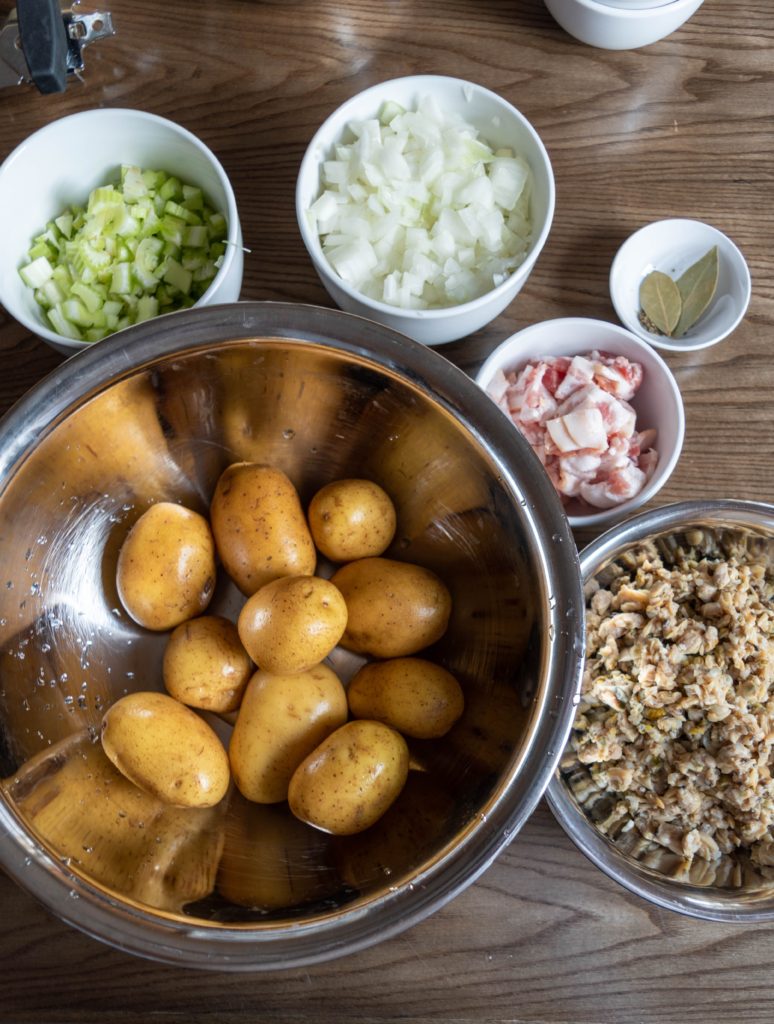
This recipe was developed in Boston last spring during the height of COVID lockdowns. For such a so-called “Boston” dish, I could not, for the life of me, find fresh clams at any supermarket in a reasonable distance to my Coolidge Corner apartment. I couldn’t even find any sort of seafood market, even on Google. Even during normal times, I doubt I would have been able to find them.
So, I am asking for pre-forgiveness when I say that I used canned clams for this batch. In fact, I was surprised by how good it actually came out!
In an ideal world, you would visit your local fishmonger and ask for a couple pints of chopped clams. Adding these clams at the last minute, when the vegetables are fully cooked and potatoes have become heavenly starch clouds, then shutting off the heat is the way to go. This makes sure that your clams do not turn overcooked. Since a lot of the salt, umami, and clam flavor will come from these, this is almost like seasoning the chowder. You should only taste for seasoning after the clams have cooked. If at any point you’re tasting your chowder before you add your clams a you say to yourself “huh, there’s something missing”, you know you’re on the right path.
The key to all great soups is the broth. We’ll use clam juice to get a great tasting broth, and we’ll use plenty of this. In a pinch, you can use low-sodium vegetable or chicken stock. Just be sure to dilute it to at least half-strength as you don’t want vegetable or chicken flavors to stand. To boost the key savoriness, we’ll add some optional MSG at the end. If your broth is lacking, feel free to add more, seasoning the soup to taste like salt. Of course, a lot of the glutamates will come from the bacon as well.
One of the things that separates a great bowl of chowder from the good ones is the extra depth and complexity that comes from subtle added smokiness. This is thanks to the use of the internet’s original meme food, bacon. Rendering chopped pieces of smoked bacon will gives us delicious rendered bacon fat to sauté our vegetables. Leaving 2/3rds of the bacon in the soup will provide smokey flavor, salt, and savory glutamates. Using the remaining 1/3rd as a crispy, crunchy topping will add some interesting heterogeneous texture and contrasting salty flavor to each spoonful of our creamy, rich soup.
Since it makes up a huge portion of the volume of your soup, it’s imperative to cook the potatoes well. This starts with your choice of potato. I prefer to use Yukon Gold (yellow) potatoes since they are starchy enough to enhance the texture of the soup and waxy enough to stay together during cooking. No more gloopy soup from potatoes that have fallen apart during simmering.
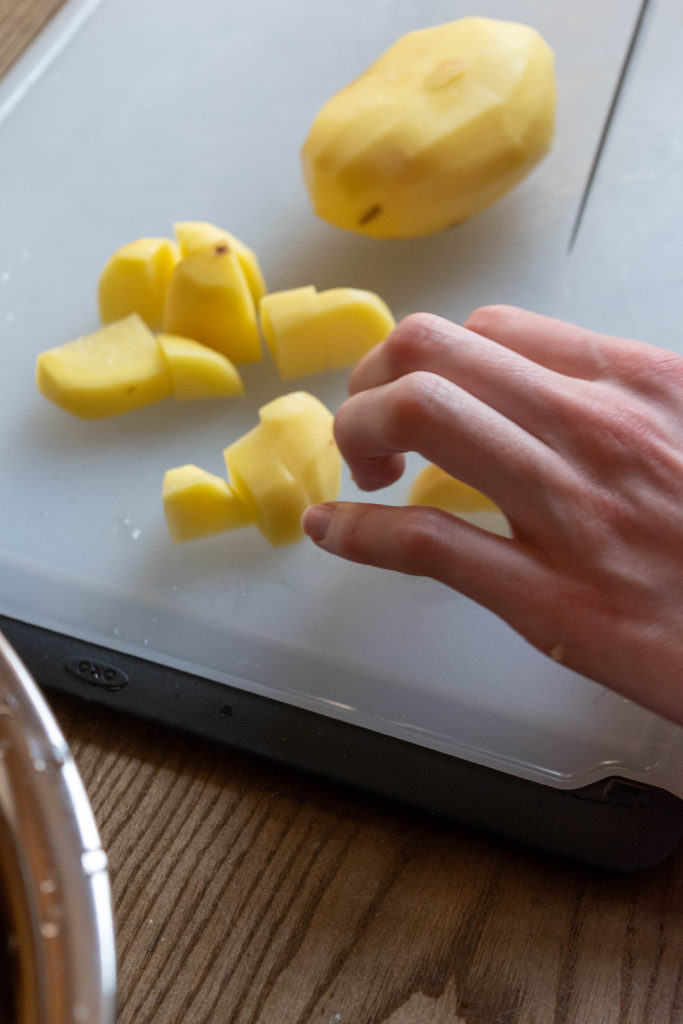
The decadent consistency of this chowder is a roux. Using heavy cream plays a part, but it isn’t quite heavy enough to do it all. Seriously, it’s responsible for a lot of the rich mouthfeel and flavor of a chowder. A light, barely cooked roux is what gives us a consistency that is thick enough to coat the back of your spoon but not so thick you need an electric mixer to stir it.
The amount of flour I call for in the initial roux is conservative for this amount of chowder. I do this because I think it’s better to thicken later on rather than loosen up with more clam juice later on (and since most of us don’t have a third setting on their kitchen faucet they can set to “claim juice”, more practical). If you need to thicken later, you can make a buerre maniere by mixing together equal parts butter and flour, then adding a teaspoon or so at a time until you’ve got the consitency you want.
INGREDIENTS:
6 pieces of smoked bacon (about 1/3rd lb), cut into 1/2 inch chunks
2 tbsp unsalted butter, plus additional to adjust for thickness
1/3 cup all-purpose flour, plus additional to adjust for thickness
1 medium yellow onion, chopped fine
3 stalks of celery, chopped fine
1 quart clam juice OR quality vegetable stock
1-2 bay leaves
1 1/2 teaspoons fresh thyme, minced, or 1/2 teaspoon dried
1 1/2 lbs of yukon gold potatoes, peeled, cut into 1/2 inch cubes
2 cup heavy cream
2 lbs chopped fresh clams or canned clams, juice drained and reserved, cooked clam meat, or 7 lbs fresh little neck or cherrystone clams, cooked, clam meat removed, and chopped, juice drained and reserved
A few tablespoons of unsalted butter mixed with equal parts all-purpose flour (optional)
Kosher salt, MSG, and pepper to taste
DIRECTIONS:
- Using a cutting board and knife, prepare bacon, vegetables, and potatoes as noted in ingredients list. Drain using a sieve, reserving remaining clam juice for later, and chop clams if needed.
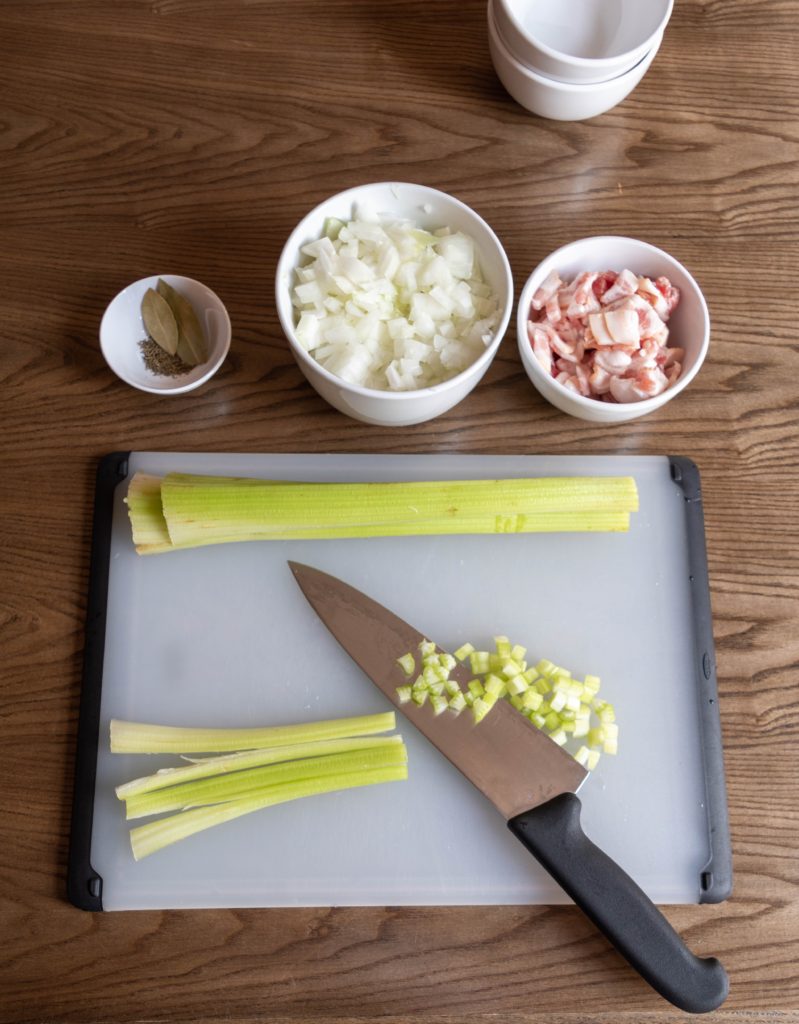
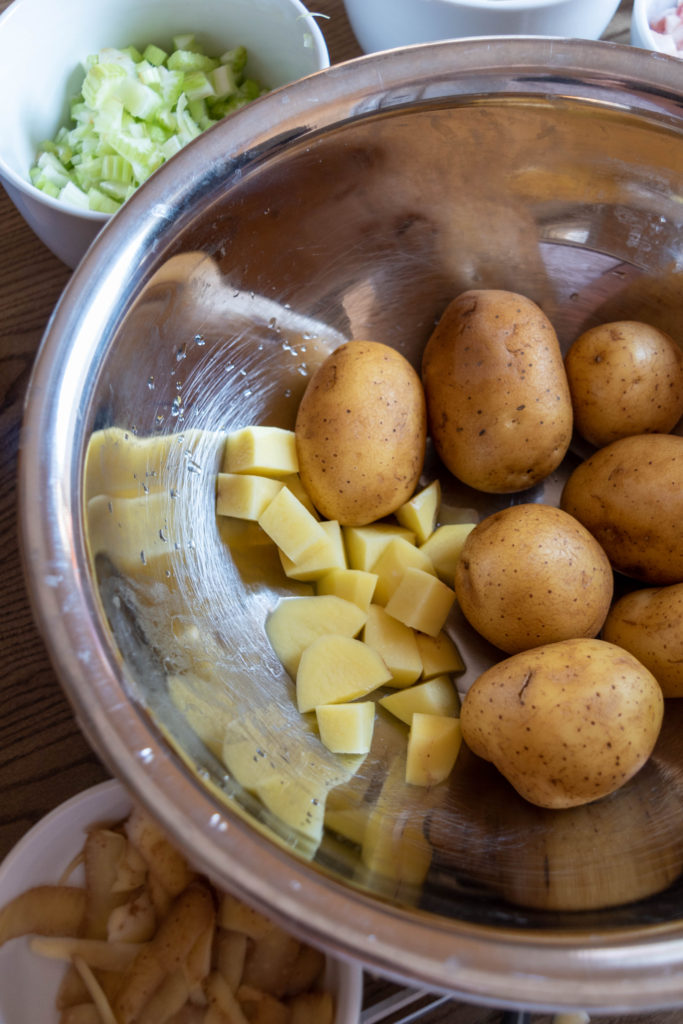
- In a Dutch oven over medium-low heat, sauté bacon with 1/4 cup water until crisp and well-rendered. Remove and reserve crisped bacon, leaving fat in pan.
- Add flour and cook until flour is dissolved but not browned, about 2-3 minutes.
- Raise heat to medium and add celery, onions, thyme, bay leaves, and a few cracks of freshly ground pepper. Sauté and stir frequently until vegetables are softened, about 5-8 minutes. Add garlic and sauté for 30 seconds, being careful not to brown anything.
- Add clam juice, half of reserved bacon, 2 tsp kosher salt, any reserved canned clam juice (if using), and milk to pot. Bring to a gentle simmer, add potatoes and cook, until potatoes are tender, about 10-15 minutes.
- Once potatoes are cooked, add clams, heavy cream, and return to simmer. When a simmer is reached, shut off the heat. This will fully cook any raw clams without turning them chewy. Soup should be well seasoned, but use salt, MSG, and black pepper to season to taste.
- Serve with remaining bacon sprinkled on top as a garnish and Tabasco sauce.
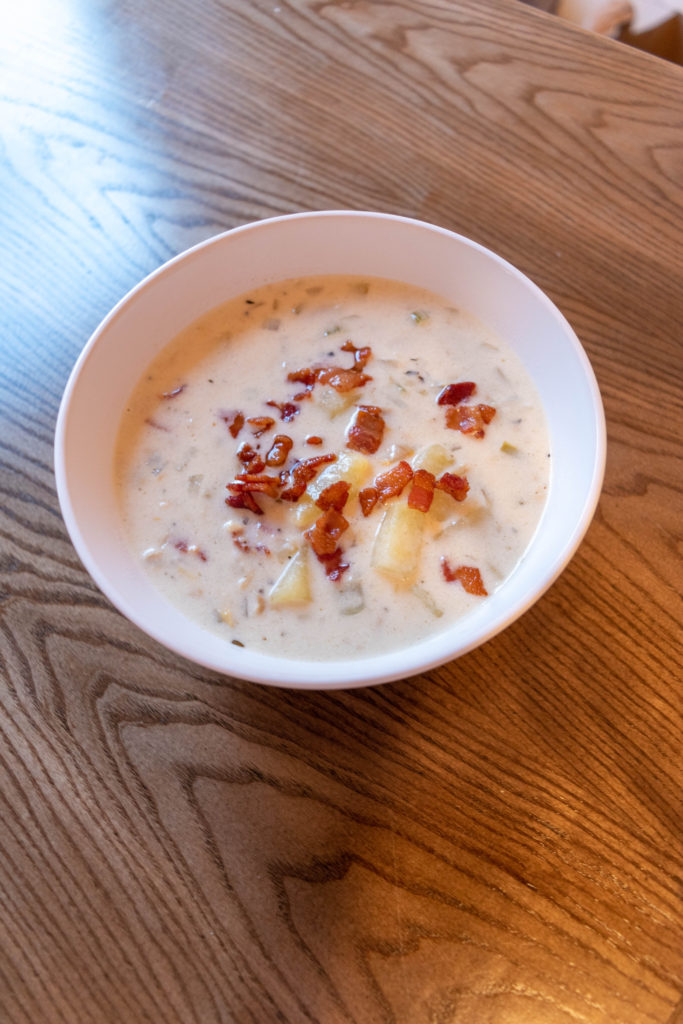
Well, there you have it! A taste of a New England cultural icon, now enjoyable wherever you are. Let me know what your favorite local dish is in the comments below!

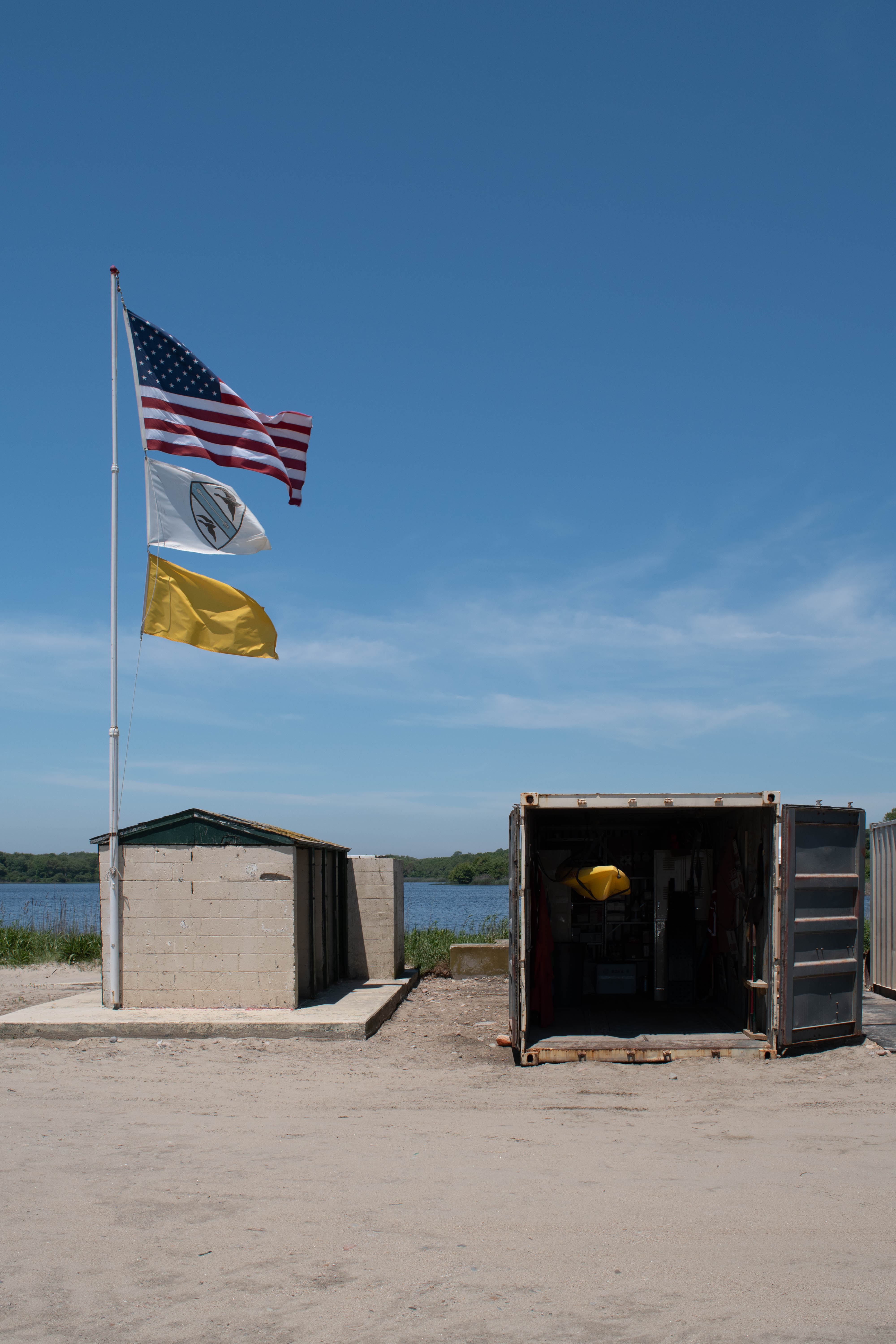


0 Comments